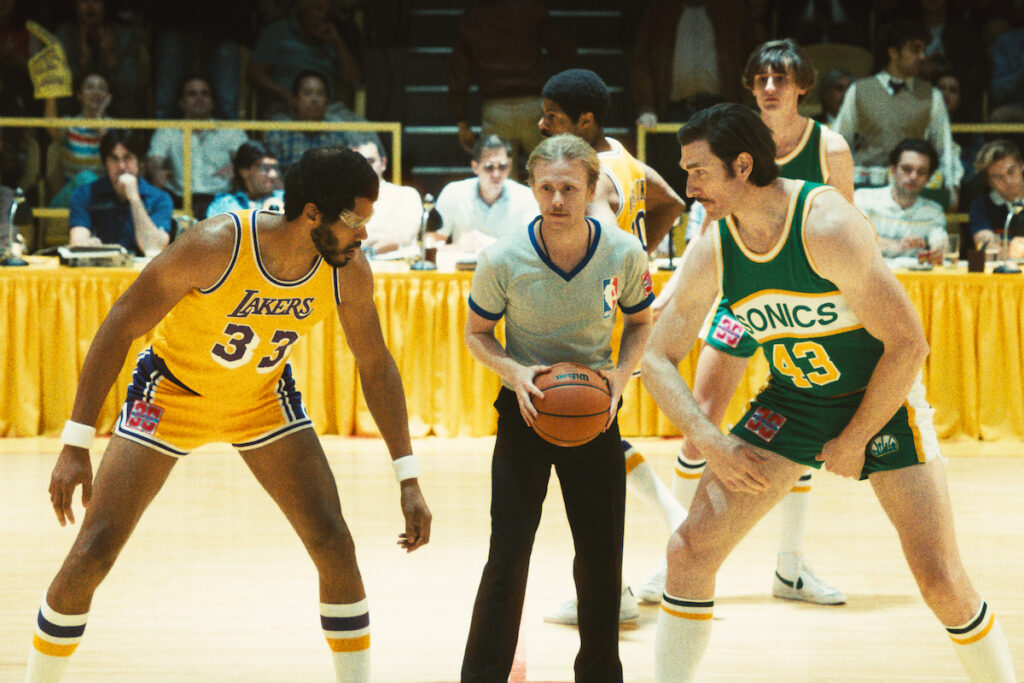Max Borenstein’s HBO sports drama Winning Time: The Rise of the Lakers Dynasty dramatizes the beloved Showtime era of basketball history to dynamic effect, and given its evocative, detailed production and nostalgic style, its recent cancellation was a shock to its fans. Ending a critically acclaimed show after only two seasons is often an unfortunate affront to TV lovers. But in this case, there might be a good reason for the show’s ending aside from deficient streaming numbers. Find out the story below.
Warning: Spoilers ahead.
Winning Time and the Incomplete Two-Season Arc
The second season of Winning Time ends in 1984, with the dramatic Finals run that ended with the Celtics victory as the NBA champions. This epic loss is not only a terrible place to end the history of this basketball era (the non-fiction book that serves as the basis of the show puts the end of the Showtime period as 1991) but also terrible storytelling to boot, given the show’s built-in audience. Despite lower reviews in the second season on average, any viewer, regardless of their history knowledge, can tell the story here is not over; HBO previously trusted those instincts instead of unceremoniously and abruptly pulling out.
Each year, for every show that gets a proper sendoff, there is one enjoyed by critics or audiences that leaves too soon. Critically acclaimed television showrunners in recent years, such as those for Barry, Physical, Reservation Dogs, and Succession, were given only three or four seasons to complete their arc, and this new trend of not spiraling a series out to infinity was likely what Winning Time needed to make fans happy. In any case, canceling at the bizarrely choppy ending of the Season 2 finale seems odd purely because the story for the next season already exists in the history books. Continuing the dramatization of history is not the best excuse for Winning Time‘s renewal, but it is a convenient and compelling reason for this show.

‘Winning Time: The Rise of the Lakers Dynasty’
Not All is Well in the Story of Winning Time
While Winning Time had a lot going for it, including a stellar cast and good, well-known directors like Adam McKay, Jonah Hill, Salli Richardson-Whitfield, and Trey Edward Shults, controversy accompanies nearly every biopic. This one courted as much or more than most, especially from the central subjects Kareem Abdul-Jabbar, Magic Johnson, and Jerry West, who criticized the series as lacking entertainment value in the face of pure fictionalization. Admittedly, the more you research the truthfulness of Winning Time, you begin to see just how odd some of the fictional elements of the show are; reactions to these dramatic additions to the Lakers story will range from forgivable to morally reprehensible.
Does Winning Time Deserve Cancellation or Continuation?
Winning Time ultimately ended as a good show with the potential to be great. In terms of quality, the show could have ended in a much worse place if the decline in living up to the best first season continued into future seasons. Opinions will vary from viewer to viewer on wanting more potential Showtime-era dramatization, but fans will prominently miss the entertainment of seeing this cast interact in a vintage style. Until further notice, there will be no more Winning Time to fret over.
Winning Time: The Rise of the Lakers Dynasty is streaming now on Max.